Flavor characteristics of Yunnan small Coffee beans describe the Brand Story of Yunnan Coffee Bean producing area in Qianjie
In the bean list of Qianjie Coffee, guests always ask about [Qianjie 2013] this coffee bean. I believe many guests are interested in this bean because it is prefixed with Qianjie. Indeed, unlike ordinary cafes, Qianjie starts to grow coffee beans before opening cafes. Qianjie first chose to grow coffee in a place called Dazhen in Guangdong, and chose beans, which are also common Katim coffee beans in Yunnan coffee. For those of you who don't know much about Katim beans, Qianjie will introduce this coffee bean species to everyone in detail later. At that time, China's coffee industry was just in its infancy, and there was little information about coffee, so Qianjie's knowledge reserve for coffee was not solid enough at that time. After more than half a year passed, Qianjie realized through practice that there was a very close relationship between the altitude and the soil of the original coffee. Only by planting high-quality coffee beans at an altitude suitable for him can we grow high-quality coffee with excellent flavor.
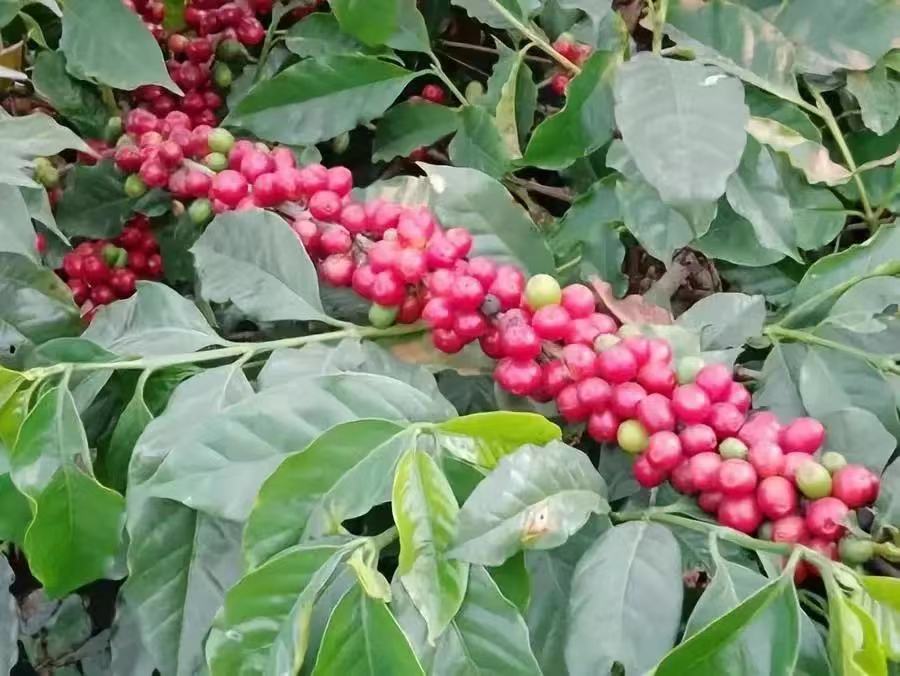
So Qianjie began to look at the whole of China. Friends who pay a little attention to China's coffee market should be able to find that coffee is currently grown in three places in China: Yunnan, Fujian and Hainan. Hainan lacks one of the most important conditions for growing coffee because of its low average altitude. Qianjie found that most of the coffee grown in Hainan are robusta beans. Robusta coffee has very low requirements for the growing environment. Genes determine that robusta coffee beans are easier to take care of and have higher yields and lower production costs than Arabica coffee crops. Because robusta beans contain twice as much caffeine as Arabica beans, they have more antioxidants and are less likely to get sick. But everything is both positive and negative. Although Robusta has many advantages, such as high production and not easy to get sick, it is usually considered to be more bitter and rougher than Arabica coffee, so Robusta beans are often not recognized as boutique coffee beans.
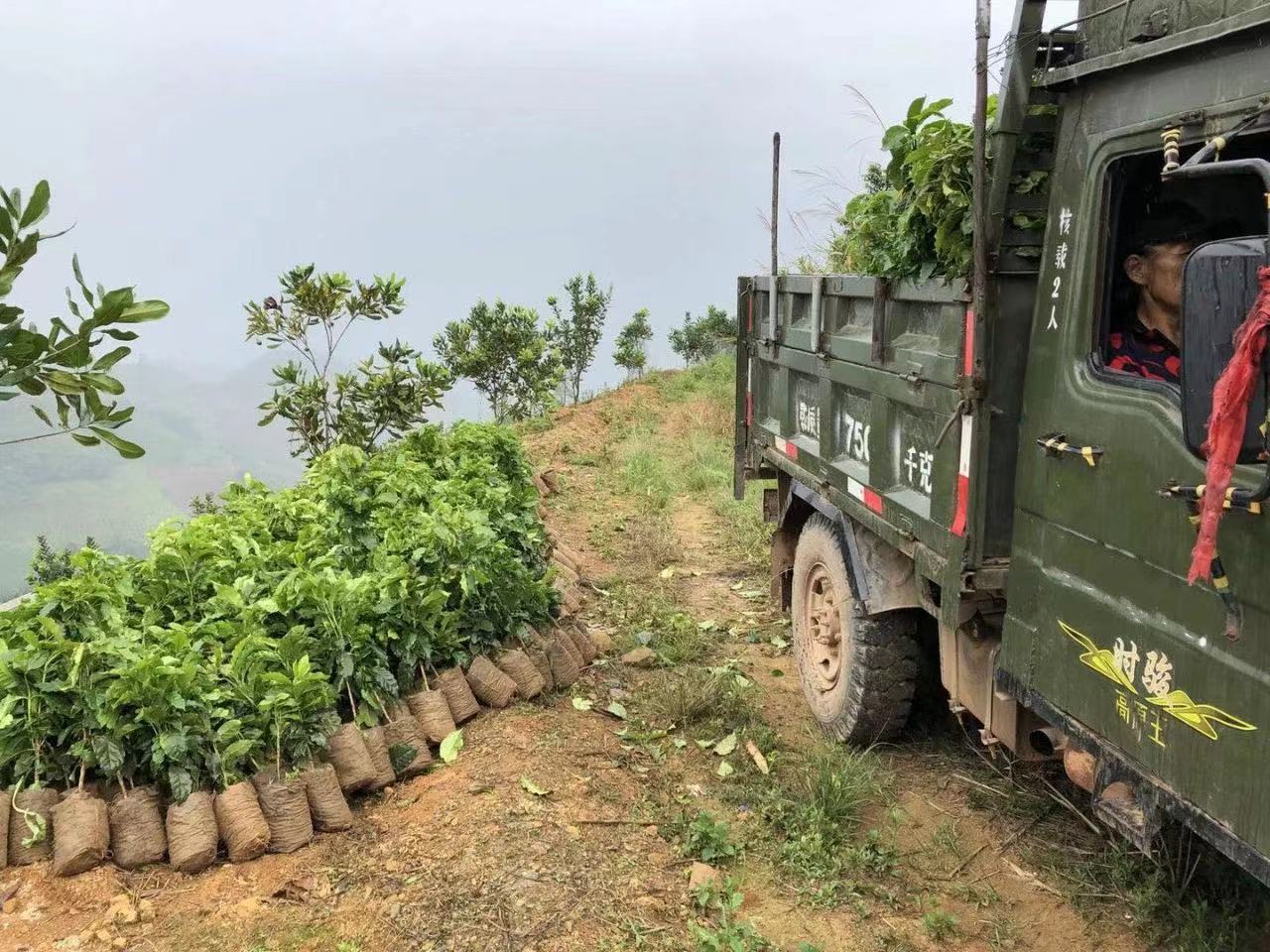
Looking at the whole of China, the most suitable place for coffee cultivation is Yunnan. At that time, most of the coffee beans grown in Yunnan were Arabica, so Qianjie Coffee made a major decision to give up growing coffee in Guangdong and grow it in Yunnan. Qianjie did not buy a coffee farm directly, but creatively bought a hilltop suitable for coffee cultivation. But the previous coffee planting experience told Qianjie Coffee that Katim was not the kind of coffee pursued by Qianjie, so Qianjie chose the more expensive iron pickup coffee beans. Why are tin coffee beans more expensive than Katim coffee, which was popular in Yunnan at that time (now)?
The difference between Katim and Tippica coffee beans:
Let's take a look at the tin coffee first. Like all Arabica coffee, the Typica group should have originated in southwestern Ethiopia. Sometime in the 15th or 16th century, it was brought to Yemen. By 1700, seeds from Yemen began to be planted in India. In 1696 and 1699, coffee seeds were sent from the coast of Malabar, India to the island of Batavia (today known as Java in Indonesia). These few seeds are the seeds that produce the unique varieties of tin cards as we now know them. Iron pickup coffee beans are the most important group of coffee genomes in the world, with excellent flavor, but the yield is relatively low compared with other coffee beans. Many famous coffee in the world are tin coffee beans, such as Jamaica Blue Mountain Coffee, Hawaii Kona Manor and so on. In Yunnan, Katim coffee beans are chosen by farmers in order to earn more money.

The second is that tin coffee beans are extremely susceptible to disease, but Katim coffee is a hybrid of Kaduai beans and Timor coffee beans. Because of the genetics of Robusta coffee, its disease resistance increases and its yield increases. But it is precisely because of this that Katim coffee also inherits the strong flavor of Robusta coffee beans. Its rough coffee flavor is also the focus of criticism by some coffee fans.
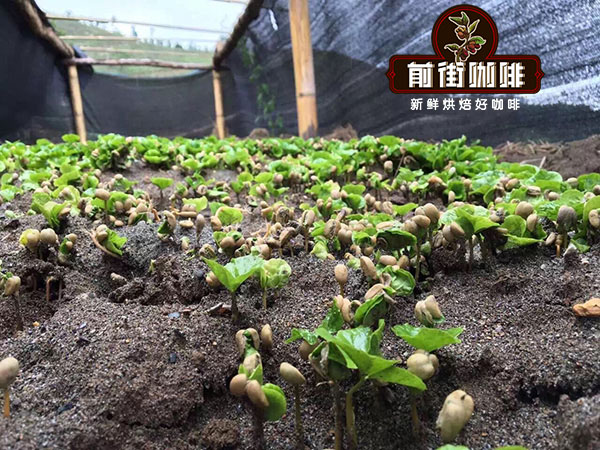
The altitude of coffee cultivation in Yunnan is generally not high, although the upper limit given by the major estates can be as high as 1800 meters, but it is important to know that not all coffee trees grow at the highest altitude. Most coffee trees are planted in Arabica coffee above sea level. Since the altitude is not high enough, use good beans to make up for it. In order to get the most satisfactory results under limited conditions, Qianjie chose the tin coffee beans with higher price and lower yield per plant. At the same time, Qianjie implemented a stricter screening management system and found a large number of skilled workers to train them, and this effort eventually condensed into the coffee bean [Qianjie 2013].
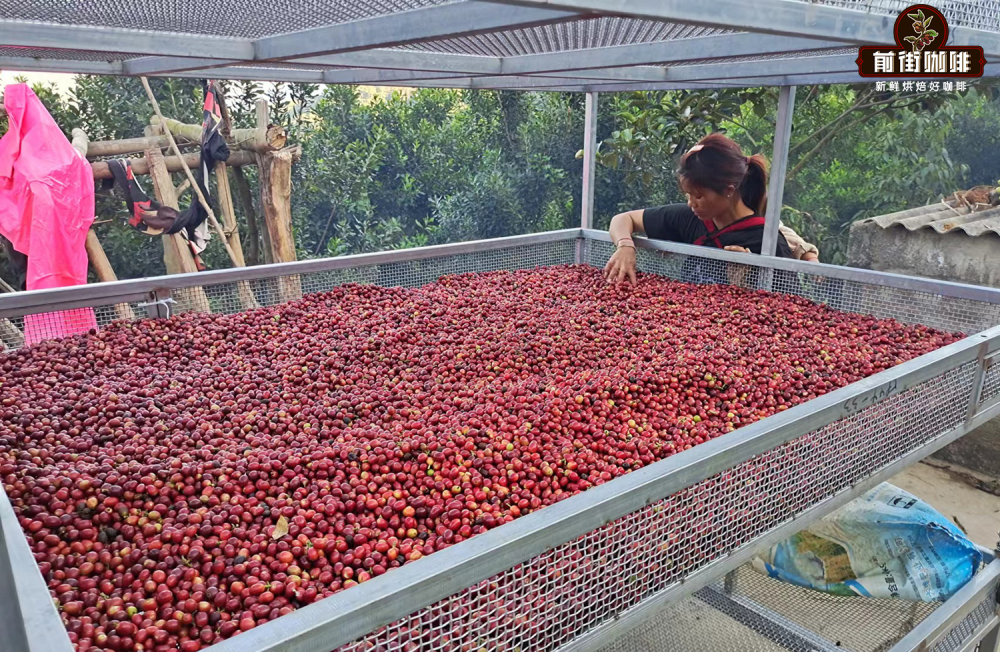
From seed to cup, [Qianjie 2013] took seven years. At first, Qianjie has been in the trial and error stage, and it takes another three to four years for coffee to go from seedling to fruit. without experience, the reporter from the headquarters was lucky to succeed for the first time, and then after many breeds, I was finally able to get out this batch of tin coffee beans of only about 200 kilograms. But the emperor lived up to his heart, and the coffee was emptied soon after it was put on the shelves because of its good flavor.
Next, Qianjie coffee will be brewed according to the standard of one shop [Qianjie 2013].
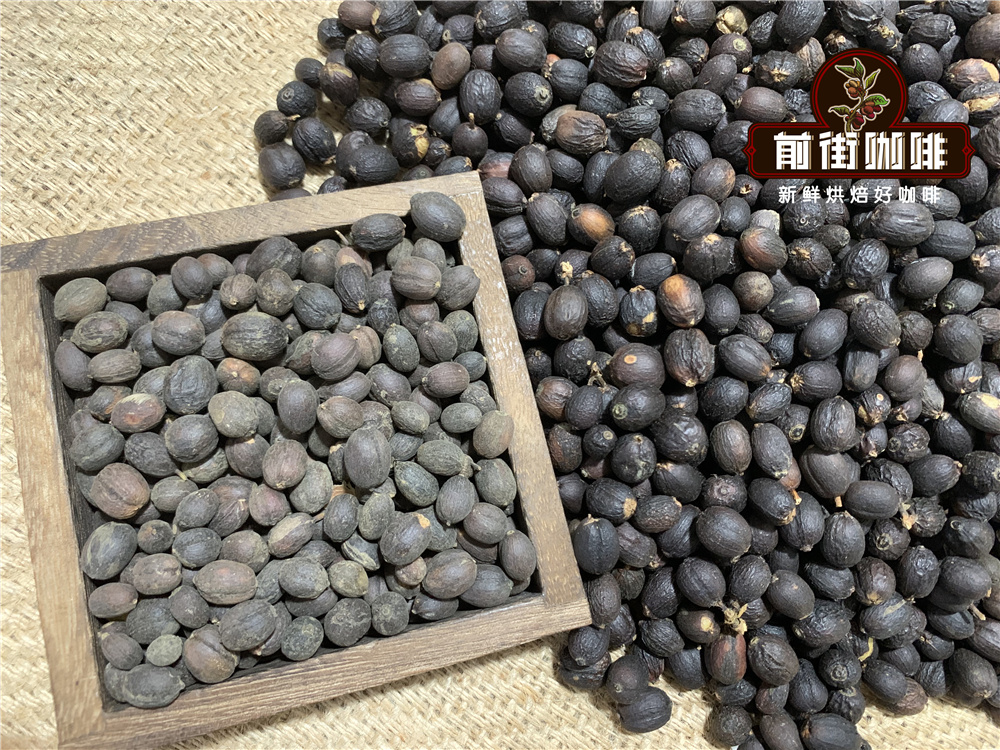
[front Street 2013]
Origin: Lincang, Yunnan
Manor: front Street Coffee
Variety: iron pickup
Treatment: insolation
Altitude: 1300 m
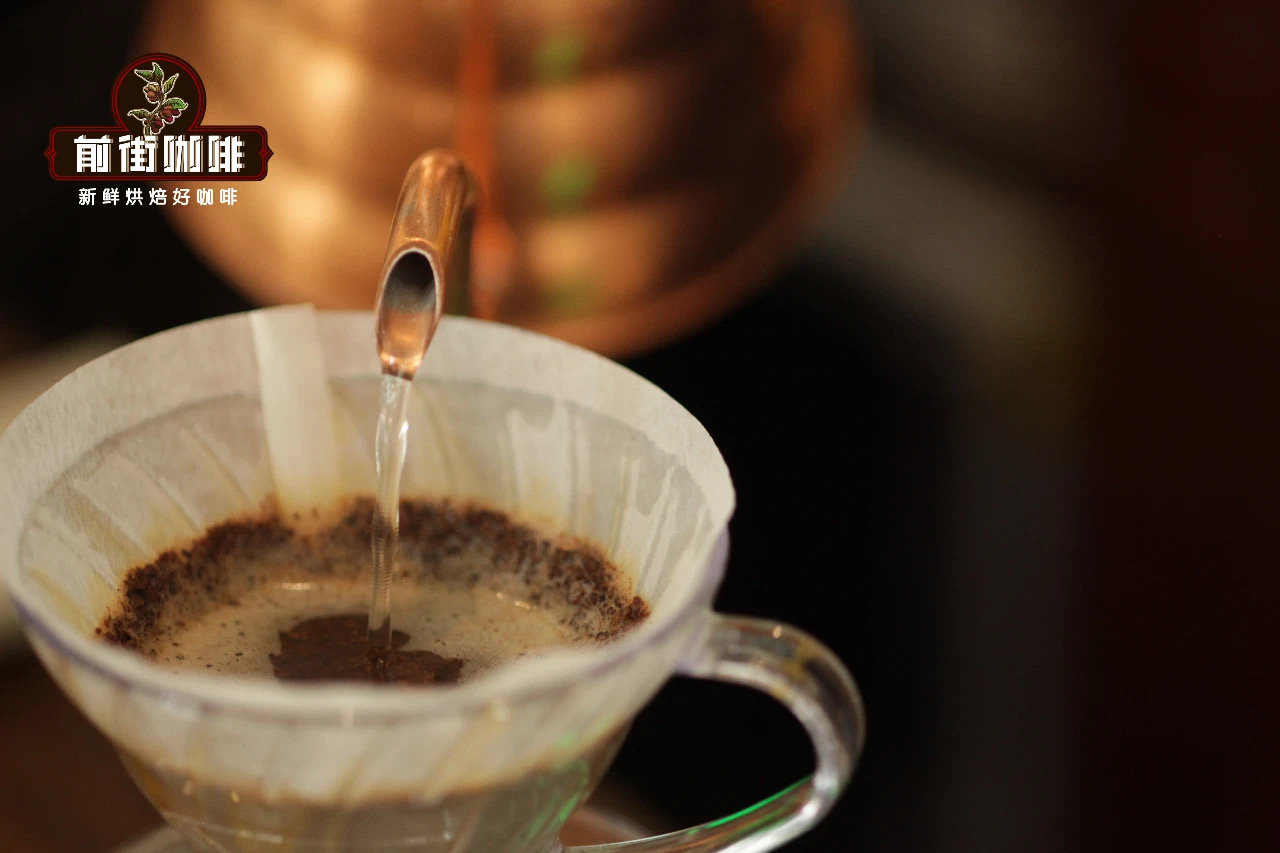
Filter cup: V60
Water temperature: 91 ℃
Amount of powder: 15g
Powder / water ratio: 1:15
Degree of grinding: fine sugar thickness (Chinese standard No. 20 screen pass rate 80%)
Extraction method: Qianjie adopted the standard three-stage extraction method. Stew with twice the amount of powder for about 30 seconds. The small flow injects water in a circle from the middle to the outside to 125 grams, and after the water level drops, continue to inject 225 grams to stop water injection, until the upper kettle drips out, the filter cup can be removed, and the extraction time is controlled in about 2 minutes.
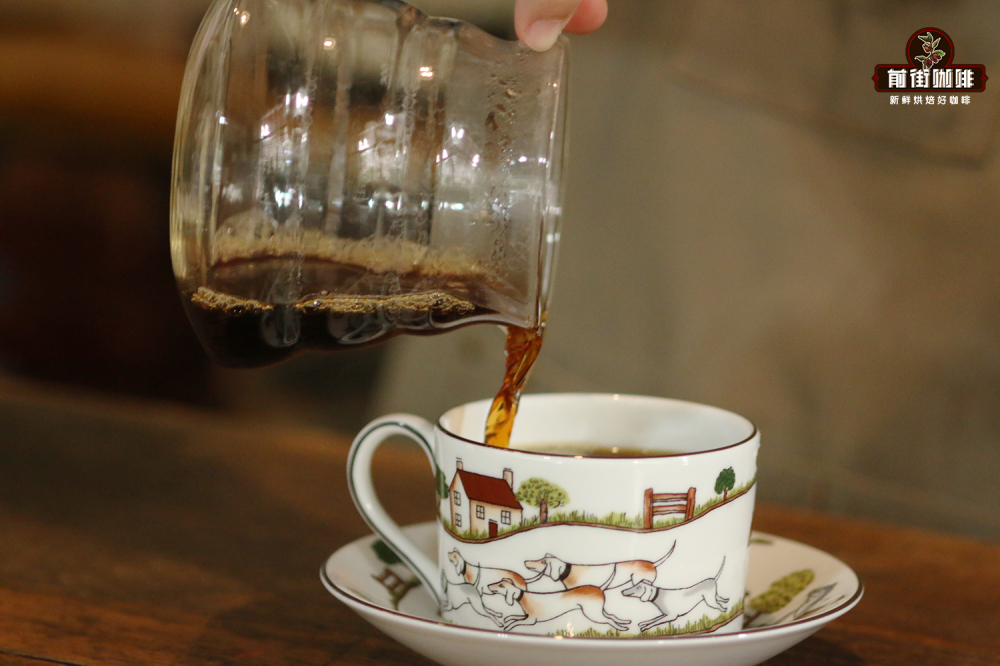
The most important feature of this coffee is the outstanding flavor of black tea, outstanding nut tonality, rich layers, and the change of flavor from berries to citrus with the change of temperature. Mention the sweetness of the dry that favors brown sugar.
Of course, the output of [Qianjie 2013] is far from enough to meet the Qianjie coffee consumers, so Qianjie has had enough of a batch of Katim coffee in Baoshan, which is what we often call Yunnan small-grain coffee. Yunnan coffee beans are Arabica species, commonly known as Yunnan small-grain coffee. Yunnan's high-quality geographical and climatic conditions provide good conditions for coffee growth. at present, it has formed four major producing areas: Lincang, Baoshan, Dehong and Pu'er. As for how the name Yunnan small Coffee comes from, Qianjie also gives a little explanation for the blow here. The earliest small coffee actually refers to Arabica coffee beans in Yunnan, and now many people think it is tin coffee, but due to the rise of the Chinese coffee market, Yunnan coffee farmers have replaced the tin coffee beans with Katim, and the massive cultivation of Katim coffee makes the name of small coffee naturally fall on Katim. So what are the taste characteristics of Yunnan small-grain coffee? Qianjie thinks that it is more expensive than tin coffee. Katim's flavor is not so delicate and elegant, with more tea and lower acidity.
Professional coffee knowledge exchange more coffee bean information please follow the coffee workshop (Wechat official account cafe_style)
For more boutique coffee beans, please add private Qianjie coffee on Wechat. WeChat account: kaixinguoguo0925
Important Notice :
前街咖啡 FrontStreet Coffee has moved to new addredd:
FrontStreet Coffee Address: 315,Donghua East Road,GuangZhou
Tel:020 38364473
- Prev

Where is the origin of Yemeni coffee?
Professional baristas exchange please follow the coffee workshop (Wechat official account cafe_style) Yemen is the world-famous hometown of coffee. Before the 6th century AD, Yemen was called Arab, so coffee trees shipped from Yemen to other places were also called Arabian coffee trees. But the origin of these trees is Ethiopia, and the Dutch spread the seeds of these coffee trees around the world.
- Next
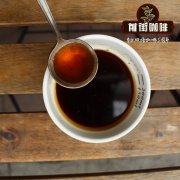
Attention should be paid to the brewing of Yunnan coffee
For professional baristas, please follow the coffee workshop (Wechat official account cafe_style) Yunnan Coffee, also known as Yunnan small Coffee 1. Small grains of coffee can not be washed directly with water, but should be washed with drip filter or high-pressure machine, but the high-pressure machine is easy to destroy the sweetness of small-grain coffee, so on the whole, Yunnan small grains can be filtered with American style, and the high-pressure machine will not be more fragrant.
Related
- Detailed explanation of Jadeite planting Land in Panamanian Jadeite Manor introduction to the grading system of Jadeite competitive bidding, Red bid, Green bid and Rose Summer
- Story of Coffee planting in Brenka region of Costa Rica Stonehenge Manor anaerobic heavy honey treatment of flavor mouth
- What's on the barrel of Blue Mountain Coffee beans?
- Can American coffee also pull flowers? How to use hot American style to pull out a good-looking pattern?
- Can you make a cold extract with coffee beans? What is the right proportion for cold-extracted coffee formula?
- Indonesian PWN Gold Mandrine Coffee Origin Features Flavor How to Chong? Mandolin coffee is American.
- A brief introduction to the flavor characteristics of Brazilian yellow bourbon coffee beans
- What is the effect of different water quality on the flavor of cold-extracted coffee? What kind of water is best for brewing coffee?
- Why do you think of Rose Summer whenever you mention Panamanian coffee?
- Introduction to the characteristics of authentic blue mountain coffee bean producing areas? What is the CIB Coffee Authority in Jamaica?

